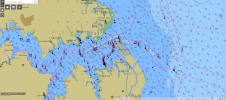Don’t Just Complain to Us - Go See Our Political Masters!
The IHO held its fourth annual Industry Days in June. Some powerful messages were delivered concerning what the IHO looks like to those on the ‘outside’. It is not an altogether pretty sight. While those of us on the ‘inside’ can give our explanations and excuses, the perception from the ‘stakeholders’ side remains the same.
The IHO held its fourth annual Industry Days in June. Some powerful messages were delivered concerning what the IHO looks like to those on the ‘outside’. It is not an altogether pretty sight. While those of us on the ‘inside’ can give our explanations and excuses, the perception from the ‘stakeholders’ side remains the same.
Two themes emerge: IHO mechanisms do not promote consultation and co-operation with stakeholders, and the IHO is apparently unable to react either quickly or in harmony with modern advances in technology, commerce and user requirements. But is this true? Well, in my view, no and yes, in that order.
In recent years, qualifying criteria for attendance and participation by non-IHO organisations in IHO technical bodies have actually been eased rather than made harder Ð yet fewer people attend. For example, there are now fewer industry or stakeholder participants at CHRIS, TSMAD and Colours and Symbols WG meetings than ever before. Similarly, attendance at IHO Industry Days is declining year by year.
I suggest two reasons why would-be participants are staying away or not actively participating in the IHO. Firstly, it is easier to let others do the work and merely criticise and complain rather than come forward with a constructive alternative. More significantly, there is a level of misunderstanding over what the IHO can achieve as an inter-governmental organisation (and often this is not much) and how much action can actually be taken by the individual HOs comprising the IHO.
In my view, the fundamental problem is that most HOs lack sufficient resources to match their visions. This prevents them being proactive through participation in IHO work and decision-making, in turn limiting the effectiveness of the IHO. It also prevents many HOs from implementing the objectives agreed at the IHO. ENC production is a good example of an international IHO programme that has not been achieved because most, if not all, HOs do not have enough resources or government support to enable the creation of the necessary charts. Likewise, inconsistencies apparent in those ENCs that have been produced are, at least in part, a result of relatively few HOs being able to actively participate in the development of what are exceedingly complex and exacting standards requirements.
There are 73 Member States of the IHO. I doubt if any of them really feel that the importance and value of hydrography to their national infrastructure and economies is either understood or fully acknowledged by their governments. This is then reflected in the level of both financial and policy support that they receive and, in turn, their ability to fulfil the objectives and the programmes of the IHO. This is where the title of this article becomes relevant. For those aggrieved, frustrated or just confused over what they see as IHO apparent inability to meet their expectations, I suggest that some outside lobbying directed at national governments might gain more long-term benefit than simply expressing frustration to the IHO.
So don’t just tell the IHO at the next Industry Days; go and tell your national government ministers - and get your friends to tell them also. Tell them the potential political risks they run by continually starving of funds such essential national safety organisations! The ministers have already heard it from the HOs and they don’t seem to be listening - and that, in my view, is where the real problem lies!

Value staying current with hydrography?
Stay on the map with our expertly curated newsletters.
We provide educational insights, industry updates, and inspiring stories from the world of hydrography to help you learn, grow, and navigate your field with confidence. Don't miss out - subscribe today and ensure you're always informed, educated, and inspired by the latest in hydrographic technology and research.
Choose your newsletter(s)
























